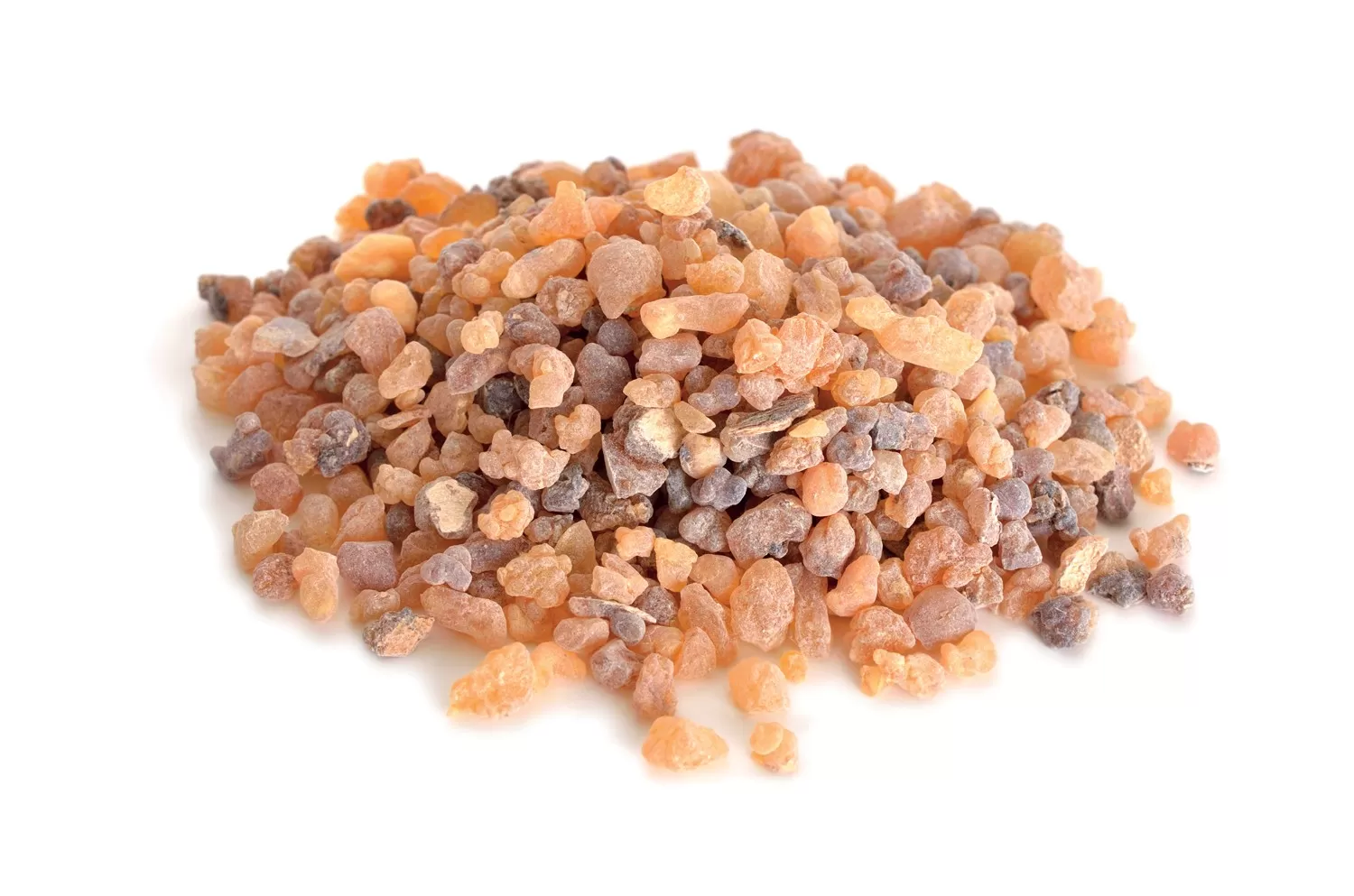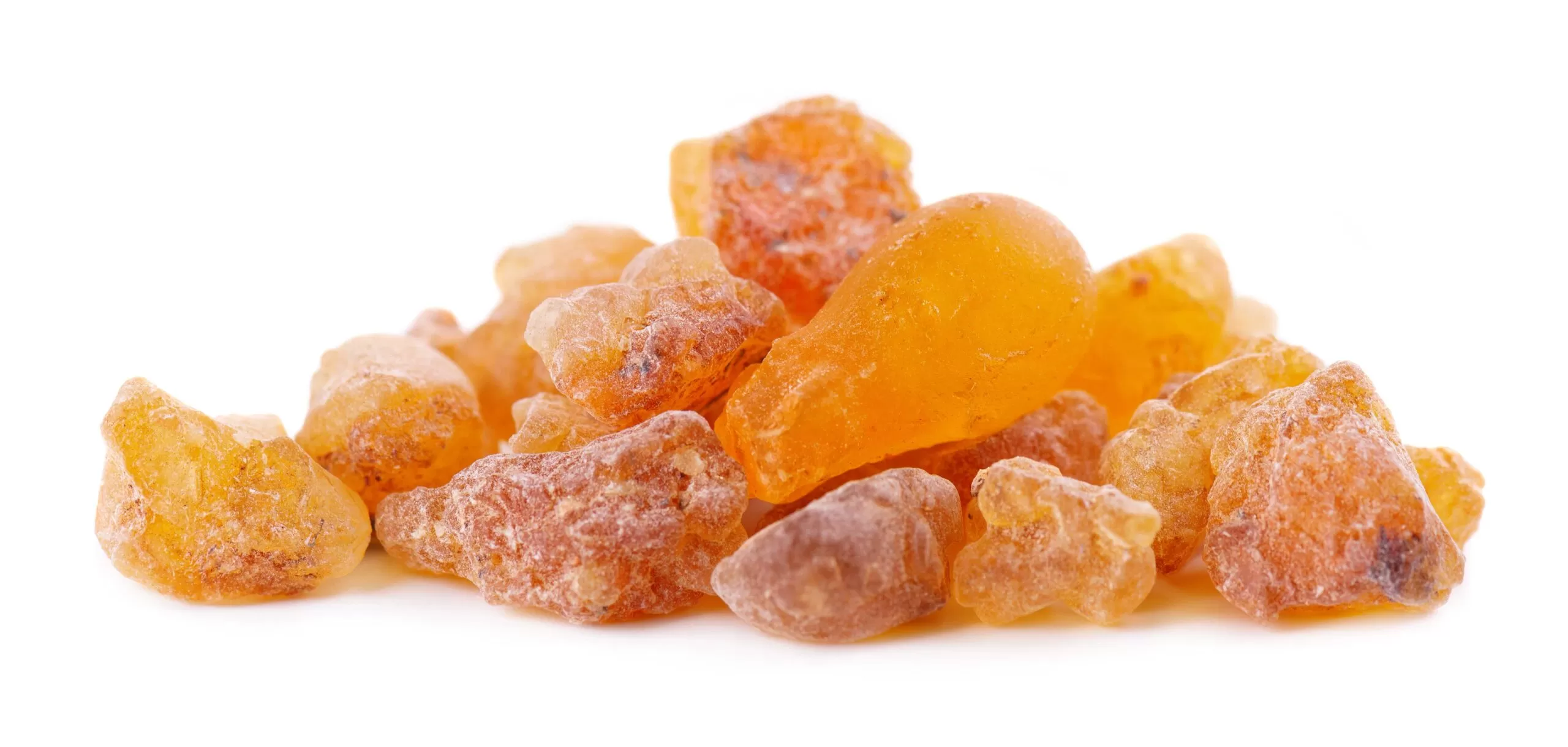- 0086-571-85302990
- sales@greenskybio.com
Is Boswellia Good for Hair Growth? A Deep Dive
2025-04-25
Boswellia serrata, commonly known as Indian frankincense, is a powerful herbal remedy with a rich history in traditional medicine, particularly within Ayurveda. Revered for its anti-inflammatory and healing properties, Boswellia has been widely used to treat conditions like arthritis, asthma, and inflammatory bowel disease. As interest in natural health solutions expands, new potential uses for Boswellia are being explored, including its possible benefits for hair growth and scalp health. This article examines the evidence supporting Boswellia’s role in promoting hair growth and the mechanisms by which it may enhance overall hair and scalp health.
Understanding Hair Growth Dynamics
To evaluate Boswellia's potential effects on hair growth, it is crucial to understand how hair grows and the common factors that affect this process. Hair growth occurs in cycles, including anagen (growth), catagen (transitional), and telogen (resting) phases. The health and functionality of hair follicles determine the duration and quality of these cycles. Factors influencing hair growth include genetics, hormonal changes, nutrition, stress, and scalp health.
Hair loss and thinning can result from various causes such as hormonal imbalances (e.g., androgenetic alopecia), nutritional deficiencies, scalp inflammation, and stress-induced effects (e.g., telogen effluvium). Addressing these underlying issues often requires both medical and lifestyle interventions.
Boswellia's Properties and Their Implications for Hair Growth
Boswellia serrata is prized for its anti-inflammatory, antioxidant, and healing properties, largely attributed to its active compounds called boswellic acids. These bioactive components have been studied for their ability to inhibit pro-inflammatory enzymes, support cellular health, and promote tissue repair.
1. Anti-inflammatory Effects: Chronic inflammation can disrupt the hair growth cycle, leading to hair loss or thinning. Boswellia’s potent anti-inflammatory action is primarily due to the inhibition of the enzyme 5-lipoxygenase, which produces leukotrienes—molecules involved in inflammation and tissue damage. By reducing inflammation, Boswellia may help create a healthier environment for hair follicles, potentially improving hair growth.
2. Antioxidant Protection: Oxidative stress, driven by free radicals, can harm hair follicles and exacerbate hair loss. Boswellia’s antioxidant properties help neutralize free radicals, protecting cells and tissues, including those in the scalp, from oxidative damage. This protection could support healthier hair follicles and foster growth.
3. Improvement in Scalp Health: A healthy scalp is essential for optimal hair growth. Boswellia's soothing properties can alleviate scalp issues such as dandruff, irritation, or psoriasis, providing a conducive environment for hair follicles to thrive. Moreover, promoting circulation in the scalp can enhance nutrient delivery to hair follicles, supporting their growth and health.
Research and Studies on Boswellia’s Efficacy for Hair Growth
Although Boswellia’s direct effects on hair growth have not been as extensively studied as its other applications, the existing evidence suggests promising avenues.
A few studies have explored the general benefits of anti-inflammatory and antioxidant agents in preserving hair health and promoting growth. While Boswellia has mostly been evaluated for inflammation-related skin conditions, anecdotal evidence suggests that Boswellia ointments and formulations may help improve scalp health and facilitate hair growth by alleviating irritation and supporting follicle health.
Anecdotal and empirical evidence should be complemented by further scientific research into Boswellia's specific impacts on hair follicles and cycles. Such studies could substantiate more definitive conclusions on its role in hair growth.
Incorporating Boswellia into a Hair Care Routine
Boswellia serrata can be incorporated into hair and scalp care through topical applications or oral supplements, both serving distinct roles.
1. Topical Applications: Boswellia-infused oils, shampoos, or creams can be massaged into the scalp to leverage its anti-inflammatory and antioxidant properties directly. This approach is particularly beneficial for those dealing with scalp conditions such as dandruff or psoriasis.
2. Oral Supplements: Boswellia extracts in capsule form can support systemic anti-inflammatory and antioxidant effects. While primarily researched for joint and inflammatory diseases, oral supplements may indirectly benefit hair health by improving overall inflammation and oxidative stress levels.
3. Combination with Other Hair-promoting Ingredients: Products combining Boswellia with other known hair growth enhancers (such as biotin, vitamin E, and omega fatty acids) may offer synergistic benefits for comprehensive hair health.
Considerations and Precautions
Before incorporating Boswellia into a hair care regimen, individuals should consider potential allergies or sensitivities, especially if using topical formulations. As with any supplement, it is advisable to consult with healthcare professionals to ensure it aligns with personal health needs and conditions. Boswellia supplements should be sourced from reputable manufacturers to guarantee quality and safety.
Conclusion
While Boswellia serrata has demonstrated potential in promoting scalp health and providing a nurturing environment for hair growth, its specific effects on hair follicles require further exploration through dedicated studies. Nevertheless, its established anti-inflammatory and antioxidant properties offer supportive evidence for its role in enhancing hair and scalp health. As part of a balanced hair care routine that includes nutrition, stress management, and other topical treatments, Boswellia could serve as a valuable component in the quest for healthier hair. As research progresses, its contributions to hair growth are likely to be further elucidated, offering exciting possibilities for those seeking natural enhancements to hair health.













